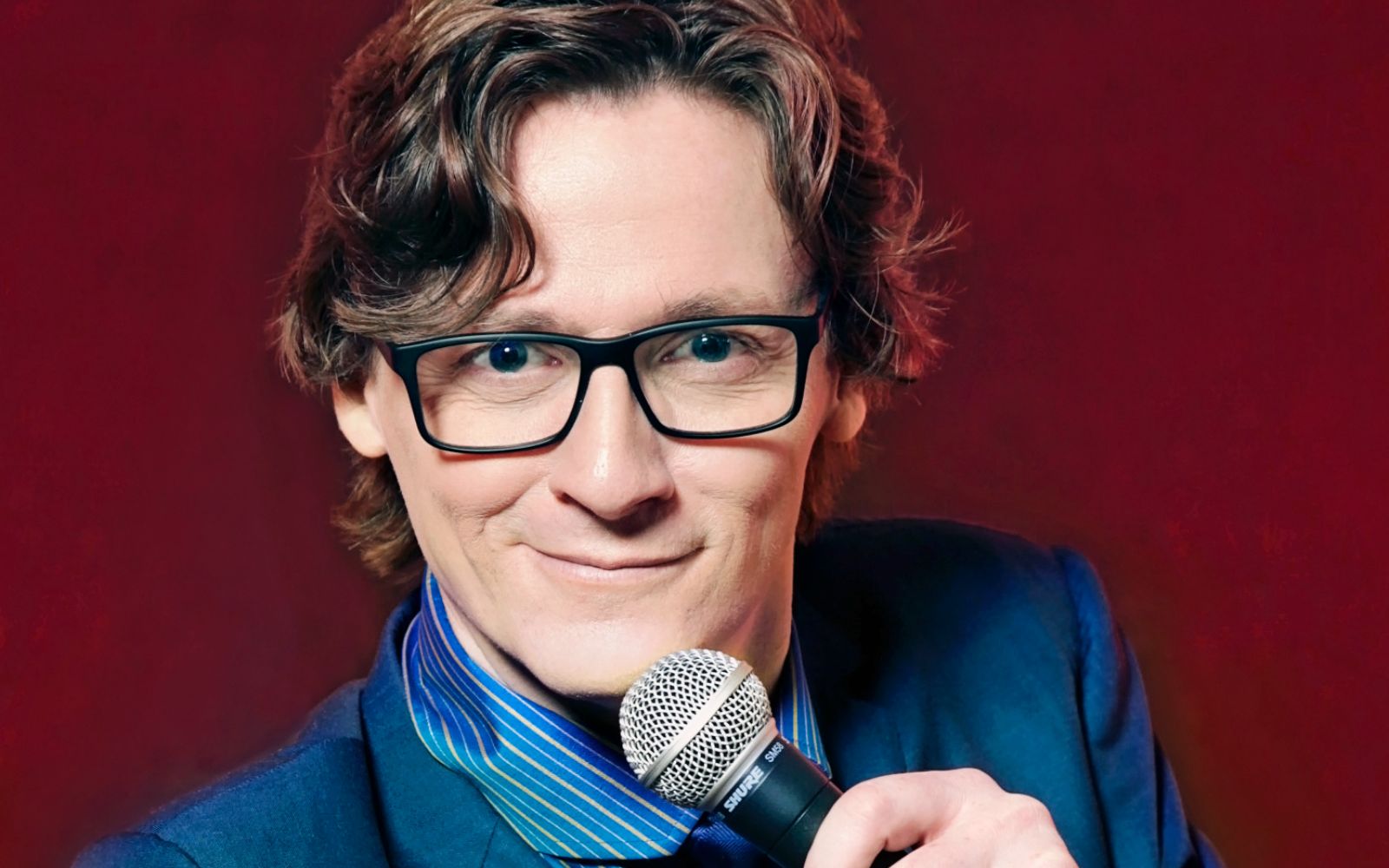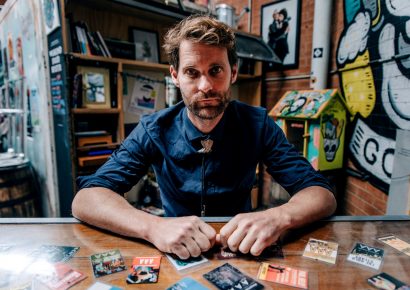Irish comedy hero Ed Byrne is returning to the Melbourne International Comedy Festival, nearly 30 years on from his debut, with the most acclaimed show of his career.
Byrne has been a pillar of the UK’s comedy scene for decades and is here touring one of the most critically successful comedy shows of recent years, Tragedy Plus Time. So it’s slightly surprising to learn that he has fond memories of his early years in Melbourne and a certain publication that helped give him his Australian break.
“1996 was my first time at MICF and I genuinely think Beat Magazine was one of the first print interviews I ever did, and I think one of the first reviews I ever got, and it was a favourable one, which I was very grateful for,” he explains. “I’m pretty sure Beat was also the first one that had my face on the cover. It wasn’t a full cover, it was just a little box, and I was in one little box, and it was literally the first time I was ever on the cover of a magazine. So Beat has a special place in my heart for that reason.”
Ed Byrne – Tragedy Plus Time
- The Malthouse – Beckett and Merlyn Theatres
- March 28 – April 21
- Tickets here
Explore Melbourne’s latest arts and stage news, features, festivals, interviews and reviews here.
The Ed Byrne we speak to today is more accustomed to hosting hit television shows, starring in films and sitcoms, and selling out global tours then gushing over their face in a box on a street press magazine. Way back when, did he know that his career would reach such heights?
“It’s gone pretty well – I was bigger, I used to sell more tickets. I used to be on BBC One, now I’m on BBC Two,” he laughs.
“A lot of other people out there have the same thing. I’m old, I’m 50-fuckin-one, I’ll be 52 in April – I’ll be celebrating my 52nd birthday in Melbourne. I celebrated a bunch of birthdays in Melbourne because it’s right in the middle of the Melbourne Comedy Festival. My 23rd, 24th and 25th…I think were all in Melbourne.”
Byrne has already been performing Tragedy Plus Time in Australia and given the five-star reviews from Sunday Times, Edinburgh Reviews and Rolling Stone that populate his advertisements, it’s not surprising to hear that it’s been well-received.
“It is going very well,” he says. “So I’m generally quite a sort of light-hearted comedian – I’m somebody who you would go to for just jokes, by and large. This is the first time I have done a show that has taken on more weighty subject matter.
“I mean, I’ve always just done whatever has been going on in my life. So when I got dumped, I talked about that. If I had just got married, I talked about that. If I’m single, had a baby, a cat, whatever it is, that’s what is going to feature in the show.
“One show, I had literally 15 minutes with me talking about a cat that came to live with us, another show had 10 minutes of me having a hernia operation, whatever is going on. And the last few shows have been mainly about having kids and talking about that.
“This show is about the fact that my brother died, because that’s what’s happened to me.”
Thus, Tragedy Plus Time.
Built around Mark Twain’s famed maxim that tragedy plus time equals comedy, Byrne’s latest show not only showcases the renowned comedic talent of an expert performer, it’s a profound combination of excellent writing and poignant psychological and societal observation.
“It’s been, of all of them, the trickiest one to write,” Byrne explains. “It’s been the trickiest one to make funny, this stuff has been able to flow out but it’s been the tricky one to do.
“Maybe I’m getting in my head too much, but I do worry, especially on Friday and Saturday shows, that I don’t think this is what these people came in for. The last couple of shows I’ve done have been very light-hearted, whereas this one is about grief and loss.
“And yet, the reviews have been better than any show I’ve ever done in my life. I’ve been nominated for awards and all this kind of stuff. But sometimes I do worry when in front of an audience, that it’s not what the people came to see.
“Because the thing is, it is a funny show, even if I say so myself. And one thing I absolutely did not want to do was one of those shows that is overly serious. It is always going to have a joke.”
Two years ago, Byrne announced that his younger brother Paul Byrne – also a successful figure in the UK comedy industry – had died, aged 44. He says his brother’s career helped formulate the approach for his latest show.
“My little brother’s thing was working with comedians and helping them turn jokes, or ideas, into a one-person show,” he says. “That was his thing and a lot of the people who worked with him, I spoke to when I was writing the show.
“[They said] that he was almost like a therapist, his thing was helping people take the darkest shit in their lives, and helping them drag that out of themselves and turn it into comedy. That was a thing that he was very good at.
“I went to see a number of his clients, in those shows that he directed. John Hastings, the Canadian stand-up was sexually assaulted, and he did a whole show about [the experience]. Paul helped him take that incident in his life and turn it into a comedy show. So taking his death and turning it into a comedy show just seems like the logical thing to do.
“I’ve never been, until this show, the sort of comedian who has wanted to do a ‘serious show’. All I’ve ever set out to be in my comedy is just funny. So now I’ve done exactly what I’ve never really set out to do! It’s not the show I wanted to write, but it is just what happened.”
While Byrne admits the success of this show has suggested a range of new possibilities, for future shows, he’s looking forward to returning to the approach that has previously made him such a beloved figure in Melbourne.
“It’s nice to flex muscles that I didn’t even know I had,” he says. “I first took the stage on November 3, 1993, so to be breaking new ground in this manner is – I have to admit – quite gratifying.
“I don’t want to be the guy who starts manufacturing trauma. I have no intention of this being ‘Oh look! I’m actually quite good at turning sadness into comedy.’ I hope that the next show I do will be a return to just bubbly, light-hearted, frothy, here’s-what-annoys-me-about-shit.”
Get tickets to Tragedy Plus Time here.
This article was made in partnership with Century.

